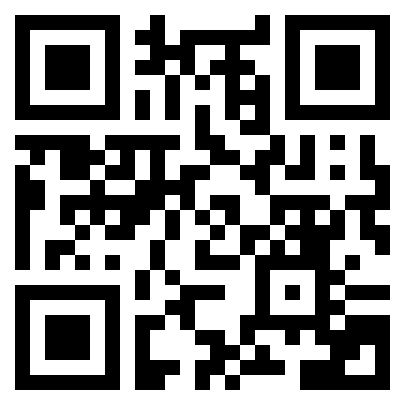Nurse Manager Strategies Assignment: Leading Clinical Change in Private Acute Care Hospitals
| University | Technological University of the Shannon (TUS) |
| Subject | Leadership in Nursing |
Step 1: Area of Practice
Practice Setting: Private Acute Care Hospital in Sydney, New South Wales, Australia
Description: This private acute care hospital provides a range of services, including emergency care, intensive care, surgical interventions, and maternity services. It operates within a competitive healthcare market, emphasising high-quality patient outcomes and efficient service delivery.
Interest/Uncertainty: There is a growing interest in understanding how nurse managers in such settings implement clinical changes. Specifically, the challenge lies in balancing evidence-based practices with the dynamic needs of a private healthcare environment, where resource allocation and patient satisfaction are paramount.
Step 2: Research Question and Evidence Search
Research Question:
What strategies do nurse managers employ to lead and sustain clinical change in a private acute care hospital setting?
Evidence Search Process:
- Databases Searched: PubMed, CINAHL, Cochrane Library, and Scopus.
- Keywords Used: “nurse manager,” “clinical change,” “acute care,” “private hospital,” “leadership strategies,” “evidence-based practice.”
- MeSH/Subject Headings: “Nurse Administrators,” “Leadership,” “Clinical Practice Guidelines,” “Acute Care,” “Private Sector.”
Justification for Chosen Resources:
- Study on Nurse Managers’ Strategies for Evidence-Based Practice in Acute Care Settings: This qualitative study provides insights into the adaptive leadership strategies nurse managers employ, such as modelling behaviour and inspiring a shared vision, which are crucial for implementing clinical changes effectively. MDPI
- Research on Clinical Leadership Behaviours in Private and Governmental Hospitals: This cross-sectional survey compares clinical leadership behaviours between private and public hospitals, highlighting the higher levels of communication, decision-making, and teamwork in private settings, which are essential for leading clinical change.
- Article on Leadership Practices of Nurse Managers in China: Although based in China, this study discusses leadership practices that can be applicable in private acute care settings, emphasising the importance of leadership behaviours in implementing evidence-based nursing.
Are You Searching Answer of this Question? Request Ireland Writers to Write a plagiarism Free Copy for You.
Step 3: Evidence Evaluation and Comparison
Levels of Evidence:
- Study 1: Qualitative research (Level VI)
- Study 2: Quantitative cross-sectional study (Level IV)
- Study 3: Qualitative research (Level VI)
Findings and Recommendations:
- Study 1: Nurse managers employ adaptive leadership strategies, including modelling behaviour and inspiring a shared vision, to implement evidence-based practices. These strategies are effective in overcoming organisational barriers and fostering a culture of change. MDPI
- Study 2: Private hospitals exhibit higher levels of clinical leadership behaviours, such as communication, decision-making, and teamwork, which are critical for leading clinical change. These behaviours contribute to improved patient outcomes and staff satisfaction.
- Study 3: Leadership practices, such as empowering nurses and fostering a supportive environment, are essential for implementing evidence-based nursing practices. These practices help in overcoming resistance and promoting sustained change. PubMed
Comparison to Practice Setting:
In the private acute care hospital setting in Sydney, nurse managers can enhance clinical change by adopting adaptive leadership strategies, fostering effective communication, and empowering nursing staff. These practices align with the findings from the studies and can be implemented to improve patient care and staff engagement.
Limitations:
The studies primarily focus on specific regions and may not fully represent the unique challenges and resources of the Sydney healthcare context. Further research is needed to explore the applicability of these strategies in the local setting.
Step 4: Barriers and Strategies for Evidence-Informed Practice
Potential Barriers:
- Resource Constraints: Limited staffing and financial resources can hinder the implementation of evidence-based practices.
- Resistance to Change: Staff may be resistant to new practices due to lack of awareness or perceived threats to clinical autonomy.
- Cultural Factors: Organisational culture may not support open communication and continuous learning.
Strategies to Overcome Barriers:
- Education and Training: Providing ongoing education and training to staff to enhance their skills and knowledge.
- Leadership Development: Developing leadership skills among nurse managers to effectively guide and support staff through changes.
- Fostering a Supportive Culture: Creating an environment that encourages open communication, collaboration, and continuous improvement.
- Resource Allocation: Ensuring adequate resources are available to support the implementation of evidence-based practices.
Get Solution of this Assessment. Hire Experts to solve this assignment for you Before Deadline.
Conclusion:
Nurse managers in private acute care settings play a pivotal role in leading and sustaining clinical change. By adopting adaptive leadership strategies, fostering effective communication, and empowering nursing staff, they can overcome barriers and implement evidence-based practices that enhance patient care and staff satisfaction.
References:
- Australian Commission on Safety and Quality in Health Care. National Safety and Quality Health Service Standards. Available from: https://www.safetyandquality.gov.au/standards/nsqhs-standards
- National Health and Medical Research Council. Clinical Practice Guidelines. Available from: https://www.nhmrc.gov.au/guidelines-publications
- Australian Institute of Health and Welfare. Private Hospitals in Australia. Available from: https://www.aihw.gov.au/reports/hospitals/private-hospitals-in-australia
- Australian Health Practitioner Regulation Agency. Registered Nurse Standards for Practice. Available from: https://www.nursingmidwiferyboard.gov.au/Standards-and-Guidelines/Professional-standards.aspx
- Australian College of Nursing. Leadership in Nursing. Available from: https://www.acn.edu.au/leadership
For students in Ireland needing help with their Nurse Manager Strategies Assignment at TUS, Ireland. We offer research paper help and online assignment writing Service assistance tailored specifically for Irish students. You don't need to look elsewhere.

